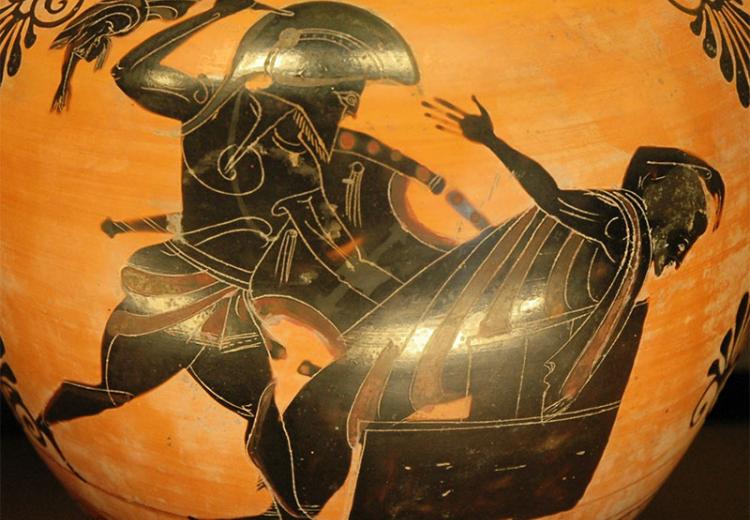A Story of Epic Proportions: What makes a Poem an Epic?

Priam killed by Neoptolemus, son of Achilles, detail of an Attic black-figure amphora, ca. 520 BC–510 BC.
Some of the most well known, and most important, works of literature in the world are examples of epic poetry. These heroic adventure tales have often had surprising durability over time, such as Homer's story of friendship and heroism, The Illiad, which continues its life in the modern film Troy. Epic poems are more than simply a lengthy story told in poetic form, and their ability to remain accessible, relevant, and remembered over time owes a significant debt to their roots in an oral tradition and to their cyclical pattern of events.
This lesson will introduce students to the epic poem form and to its roots in oral tradition. Students will learn about the epic hero cycle and will learn how to recognize this pattern of events and elements- even in surprisingly contemporary places. Students will also be introduced to the patterns embedded in these stories that have helped generations of storytellers remember these immense poems.
Guiding Questions
What is an epic poem?
How have epic poems traditionally been transmitted from generation to generation?
How do tellers remember these long and complicated stories?
Learning Objectives
Define epic poetry and be able to identify and describe the epic hero cycle.
Analyze epic poems to determine plot, characterization, and themes.
Compare epic poems across time, cultures, and places to determine similarities and differences.
